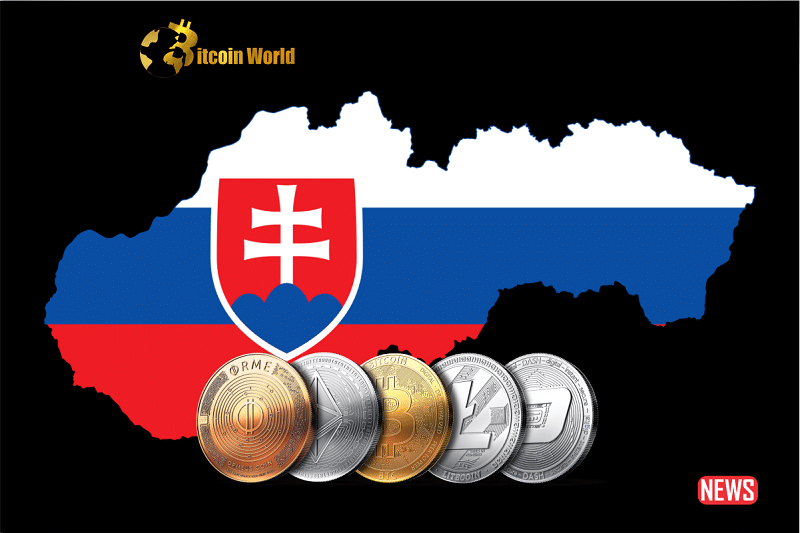Slovakia has recently taken a bold step towards embracing cryptocurrencies, as news broke of a groundbreaking bill that significantly reduces the tax burden on digital assets. This move aims to create a more favorable environment for cryptocurrency users and stimulate the adoption of digital currencies within the country.
The bill, set to take effect on January 1, 2024, introduces a host of key provisions that will revolutionize the taxation of cryptocurrencies in Slovakia. Peter Kris, the founder of Mangata Finance, shared the exciting details of this legislation.
One of the most notable changes is the reduction in tax rates for holding cryptocurrencies. Previously, individuals were subjected to a steep 39% tax rate. However, under the new law, holding cryptocurrencies for more than a year will only incur a reduced tax rate of 7%. This substantial decrease will undoubtedly incentivize long-term holding and investment in digital assets.
Furthermore, the legislation clarifies that exchanging one cryptocurrency for another will now be considered a non-taxable event. This eliminates the previous tax burden associated with such transactions, making it easier for individuals to diversify their crypto portfolios and explore new investment opportunities.
While the exchange of cryptocurrencies for stablecoins will be subject to taxation, the specific tax rate remains undisclosed. Nevertheless, this measure encourages the use of stablecoins and ensures a fair and transparent tax framework for such transactions.
The bill also grants individuals the freedom to make tax-free purchases of goods and services using cryptocurrencies. Each year, up to €2400 worth of purchases can be made using digital assets, promoting the practical utilization of cryptocurrencies for everyday transactions and increasing their mainstream appeal.
Staking, a popular activity in the cryptocurrency space, also receives clear guidelines under the new legislation. Staking rewards will only be taxed when converted to fiat currency or stablecoins, providing clarity and certainty for crypto enthusiasts who engage in staking activities.
The announcement of Slovakia’s progressive crypto tax legislation caught the attention of prominent figures in the industry. Changpeng Zhao, the CEO of Binance, raised a query on Twitter about tax payments when residents directly pay for items using BTC or BNB. Although Peter Kris did not respond to Zhao’s question, the conversation stimulated further discussion, with another crypto influencer asking Zhao about his preference between BTC and BNB. Zhao revealed that he consistently uses BNB but includes BTC in his questions as a sign of respect.
With Slovakia’s groundbreaking tax reforms and the interest it has generated among industry leaders, the country is poised to become a thriving hub for cryptocurrency adoption and innovation. As other nations observe this progressive approach, it may pave the way for wider recognition and acceptance of digital assets on a global scale.














